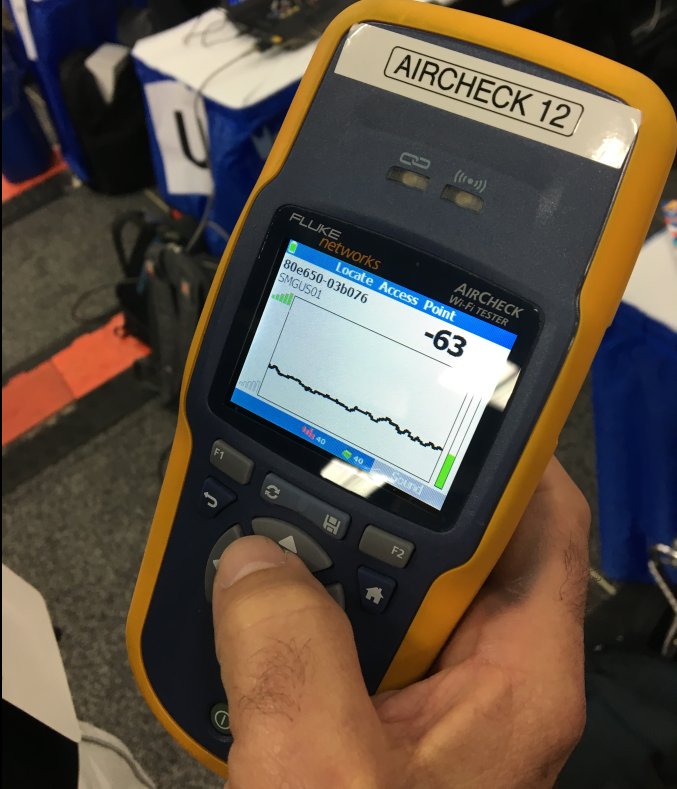General Discussion
Related: Editorials & Other Articles, Issue Forums, Alliance Forums, Region ForumsHofstra charged $200 to use their WiFi during the debate. FCC to investigate
Reporters at the event were appalled to find that among the heavily marked-up items they were offered – $150 to rent a lamp, anyone? – was a $200 charge for a "secure wireless internet connection."
Worse than the clear effort to price-gouge people trying to file stories, however, was the fact that the university decided that only its wireless access points were allowed to be used, and even sent someone around with a Wi-Fi signal detector apparently threatening to throw out anyone who was using an "unauthorized" access point.
That action – effectively shutting down people's ability to use their own internet connection in order to force them to use a paid-for service – was ruled illegal in 2014 by the Federal Communications Commission (FCC) in a landmark ruling against Marriott Hotels.
In that case, Marriott was actively blocking guests' hotspots to force them onto its paid-for network and argued that since it was its property it could do pretty much what it liked. It and the Hilton also argued that guest access points were interfering with their network and were serving as a security risk.
In Marriott's case, it set up equipment that spammed out Wi-Fi deauthentication packets over the air to knock laptops and other devices off guests' personal hotspots, thus forcing them to use the venues' rather expensive paid-for networks.
The FCC was unimpressed: the watchdog fined Marriott $600,000. It then backed up that fine with a formal advisory, and embarked on some aggressive enforcement of the rules – fining Smart City $750,000 last year for blocking personal Wi-Fi hotspots – to make sure everyone got the message.
Under the rules, "no hotel, convention center, or other commercial establishment or the network operator providing services at such establishments may intentionally block or disrupt personal Wi-Fi hot spots on such premises, including as part of an effort to force consumers to purchase access to the property owner's Wi-Fi network."
It adds: "Such action is illegal and violations could lead to the assessment of substantial monetary penalties."
http://www.theregister.co.uk/2016/09/27/presidential_debate_wifi_ripoff/
And those that did pay that $200 charge didnt get very far. The network crashed due to the load.
Increasing the WiFi charge isn't what's illegal. The problem is that they were enforcing a ban on people using their own personal connections and hot spots. They didnt want anyone accessing the internet without paying the school $200 (or more depending on your needs). That is what's illegal.
bigwillq
(72,790 posts)What they did is gross.
PJMcK
(22,037 posts)Jim Lane
(11,175 posts)I wonder if Hofstra will contend that, as an academic institution, it's not covered by that rule.
Hassin Bin Sober
(26,330 posts)Regardless, the FCC gets really cranky about jamming or interfering with radio signals no matter who does it.
Maybe kicking people out for using their own wifi might not be covered under the rule.
branford
(4,462 posts)If the regulations really only apply to "hotels, convention centers, or other commercial establishments," courts would need to look at the nature, purpose and general access of Hofstra.
The regulation appears to be limited to quasi-public areas engaged in commerce. This is the same basis that allows anti-discrimination and similar laws in certain locales. I don't know if a private educational institution offering access to presidential candidates and the press on a one-time basis as a public service would be considered such a venue.
The legal arguments will be interesting, assuming the FCC pursues any action.
Hassin Bin Sober
(26,330 posts)... I doubt VERY MUCH there is an exemption for non profits.
Furthermore, the "advisory" wouldn't serve to exempt anyone not mentioned. The advisory is not the law.
Lee-Lee
(6,324 posts)The FCC ruling says you may not jam or block a wifi signal. That puts it under their legal authority because it involves the actual broadcasting of a radio signal on the airwaves where the FCC has jurisdiction.
They didn't block hotspots, they just told people they were not allowed to be used or they would be kicked out.
That is different, and likely legal. Think of a theater, it's illegal for them to use cell phone jamming equipment and several have been fined, bug perfectly ok for them to have rules that say if you use a cellphone on premises they will kick you out. Because Hofstra wasn't jamming the hotspots bug just finding them and telling people they were not allowed its closer to the latter.
Shitty, but probably not illegal.
Jim Lane
(11,175 posts)There's competition for the prestige of hosting one of these. The CPD should just say that one condition for being a debate site is that the host institution must provide wifi for no more than something like $10, with free being better, and must not interfere with attendees' use of their own hotspots.

